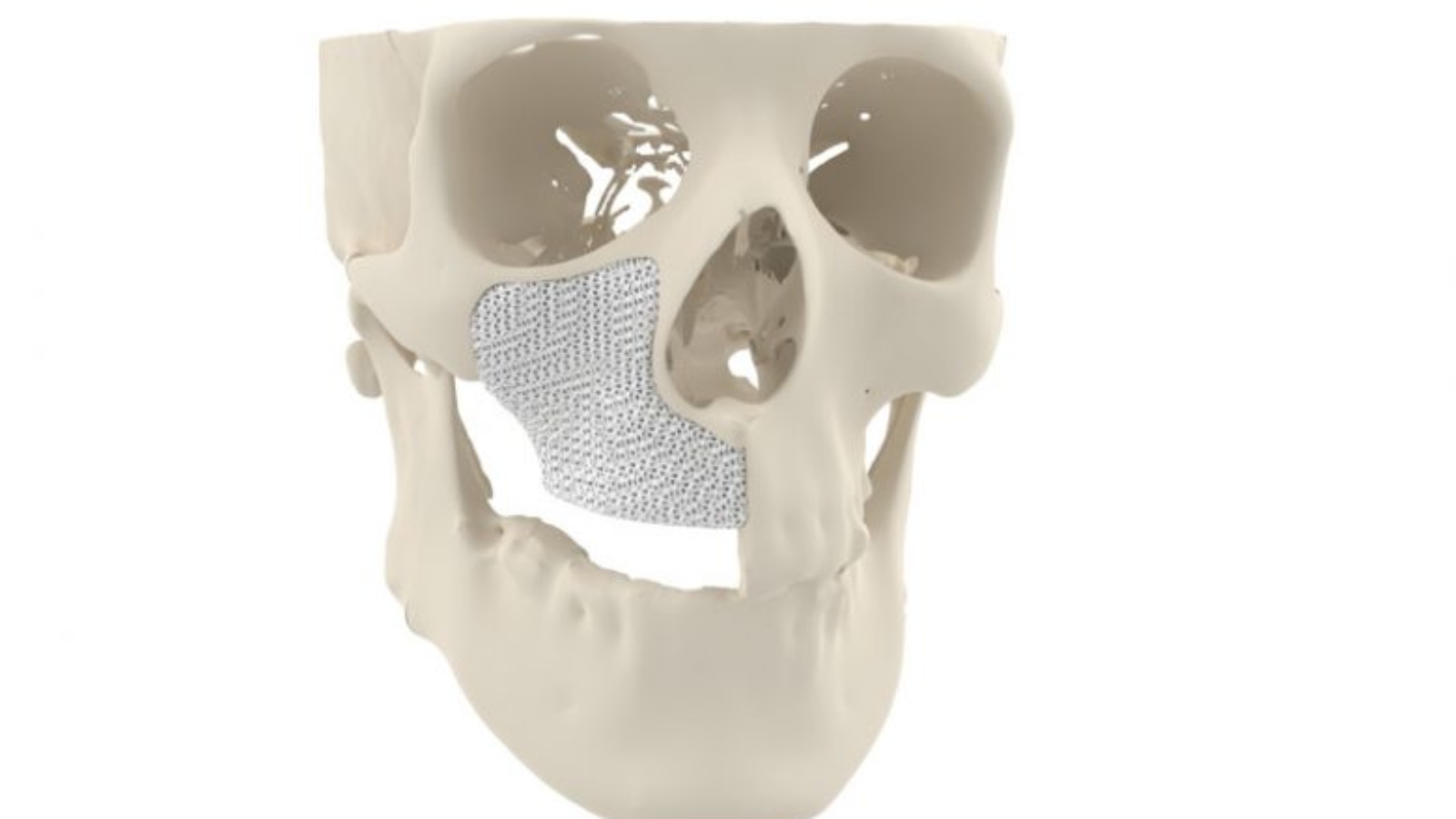Surgeons in Europe now have access to MyBone, a patient-specific 3D printed bone, to treat patients with severe facial deformations. This 3D printed bone is made of hydroxyapatite, a calcium phosphate that is the main mineral component of natural bone. MyBone is 3D printed with a unique porous structure by Cerhum, a medical device company in Liège, Belgium.
MyBone is the first commercially available 3D printed bone graft authorized under the Medical Device Regulation 2017/745 (MDR), registered with the Belgium Competent Authority (FAMHP, registration number BE/CA01/1-72228) and ISO 13485 certified.
Manufacturing on Demand
MyBone is made available to the first batch of maxillofacial and orthopedic surgeons as a patient-specific implant. For example 2 years ago, as part of a controlled release phase, a complex and challenging case was done in which a patient received a 3D printed bone implant. The patient is doing excellent and the implant looks exactly like natural bone on a recent CT scan.
Dr. Christophe Ronsmans, Head of Department Plastic surgery, CHR Liege said about this patient: “Given the complexity of the defect, it would have been impossible to achieve such perfection from an aesthetic point of view and such a functional result with current methods.”
Grégory Nolens, Cerhum Founder and CSO added: “We are very proud to have successfully gathered vital clinical data and passed all the regulatory hurdles with a synthetic bone graft that is safe and effective. Our 3D printed bone implants offer a unique, patented porous structure that allows ingrowth of blood vessels. This process, called vascularisation is key to achieve successful bone ingrowth. As a result, MyBone has shown 7x faster bone ingrowth than currently available bone graft granules. Due to extremely positive feedback of maxillofacial surgeons so far, Cerhum is expanding its portfolio into the dental and oncological market.”
You might also like:
Intertronics supports University of Sheffield with bioelectronics research: To improve the way recovery from injury and the progression of neurological/musculoskeletal conditions are monitored, the ACSE team is developing a diagnostic glove that includes several flexible 3D printed bioelectronic sensors. The sensors are formed from elastomers mixed with various conductive microparticle and nanoparticle compounds, like graphite, platinum, and silver, which are 3D printed onto the glove’s material.
* This article is reprinted from 3D Printing Media Network. If you are involved in infringement, please contact us to delete it.
Author: 3D Printing Media Network


Leave A Comment